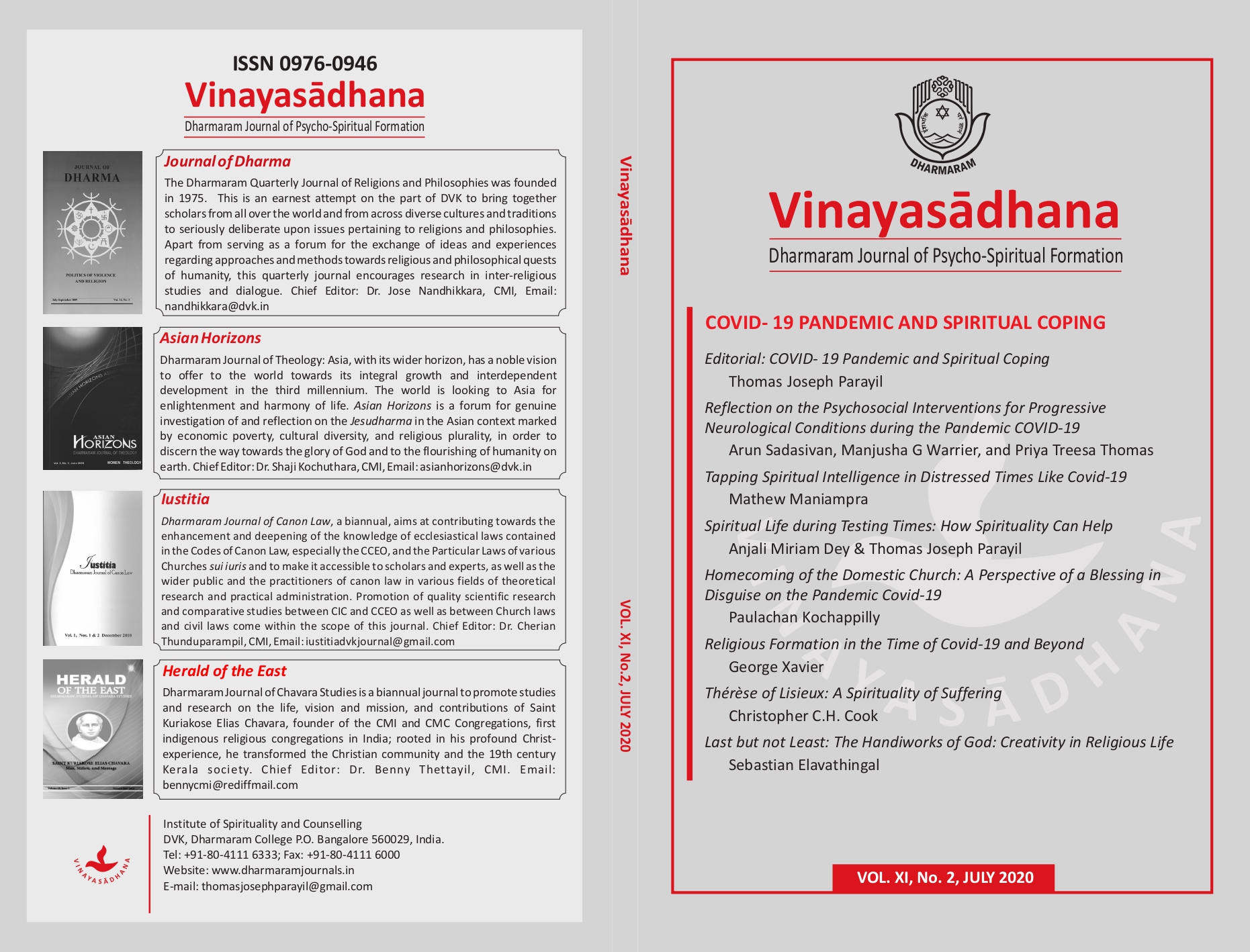Therese of Lisieux
A Spirituality of Suffering
Keywords:
Thérèse of Lisieux, Teresa of Avila, Vocation, SufferingAbstract
Thérèse of Lisieux wrote that a desire to suffer was “born within her heart” at the age of only 11 years which later in her life, she concluded that her vocation was in fact not suffering, but love. She developed a creative and individual approach to pursuing this vocation which she referred to as her “little way”. In the final months of her life, she faced the challenges of doubt and inner darkness, as well as the physical sufferings of her terminal illness, with the same spirit of love and prayer that she had brought to bear on smaller things. Thérèse did not show psychological awareness of how her desire to suffer may have been formed by her early losses or the religious culture of her time. However, her spirituality reflected a remarkably creative and dedicated approach to Christian living, within which small and great experiences of suffering were all grasped as opportunities to express love for God and her fellow human beings. The desire to suffer for suffering’s own sake may be identified as psychologically and theologically contrary to human flourishing and marks a different approach to that of John of the Cross or Teresa of Avila. However, the differences may be less than commonly appreciated and Thérèse modelled a creative approach to Christian living which is more characteristically
Carmelite than it may at first appear.
References
Clarke, J. (Ed.). (1977).St. Therese of Lisieux: Her Last Conversations. Washington DC: Institute of Carmelite Studies.
Clarke, J. (1982).Letters of St. Therese of Lisieux: General Correspondence. Volume I, 1877-1890.Washington DC: ICS Publications.
Clarke, J. (1988).Letters of St. Therese of Lisieux: General Correspondence. Volume Ii, 1890-1897.Washington DC: ICS Publications.
Clarke, J. (1996).Story of a Soul: The Autobiography of St TheRšse of Lisieux. Washington DC: ICS Publications.
Cook, C. C. H. (2018).Voices, Demonic, and Divine: Scientific and Theological Perspectives.
Foley, M. (2008).The Context of Holiness: Psychological and Spiritual Reflections on the Life of St Thérèse of Lisieux. Washington DC: ICS Publications.
Gaucher, G. (1999).John and Thérèse: Flames of Love. New York: Alba House.
Gaucher, G., Conroy, S.,& Dwyer, D. J. (Eds.). (2008).The Plays of St Thérèse of Lisieux. Washington DC: Institute of Carmelite Studies.
Leslie, S. (2005).Great Little Doctor. London: St Pauls. Nevin, T., R. (2006).Thérèse of Lisieux: God's Gentle Warrior. Oxford: Oxford University Press.
Renault, E. (1997). Thérèse in the Night of Faith. In De Meester, C. (Ed.) Saint Thérèse of Lisieux: Her Life, Times, and Teaching. Washington DC: ICS Publications, p. 223-234.
Ruiz, F., Roascio, G., Salvatico, G., Rodríguez, J. V., Egido, T., San Román, J. B., Giordano, S.,& Restani, R. (1991).God Speaks in the Night: The Life, Times and Teaching of St John of the Cross. Washington DC: ICS Publications.
Sherley-Price, L. (1952).Thomas À Kempis: The Imitation of Christ. Harmondsworth: Penguin. London: Routledge.


